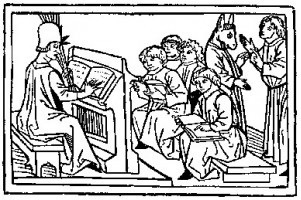|
|
||
|
|
PhD Programme in Philology |
|
|
THE PhD PROGRAMME
|
History The PhD in Philology is an expression of the scholarly tradition of Linguistics, Philology and Literary History as applied scientifically to the European cultural heritage of the classical, medieval and modern periods and which goes back to the refounding of the University of Naples Federico II following the unification of Italy. Major scholars in these fields over the last 150 years include, among many others, such internationally renowned figures as Luigi Settembrini (1813-1876), Francesco De Sanctis (1817-1883), Giacomo Lignana (1827-1891), Michele Kerbaker (1835-1914), Francesco D’Ovidio (1849-1925), Francesco Torraca (1853-1938), Ezio Levi D’Ancona (1884-1941), Francesco Arnaldi (1897-1980), Vittorio De Falco (1898-1980), Salvatore Battaglia (1904-1971), Francesco Sbordone (1911-1983), Alberto Cento (1920-1968), Marcello Gigante (1923-2001), Mario Di Pinto (1925-2005), Antonio Garzya (1927-2012), Francesco Orlando (1934-2010), Alberto Varvaro (1934-2014), Giancarlo Mazzacurati (1936-1995), as well as many scholars who are still teaching at the University. The present PhD in Philology is made up of the previous PhD courses in Classical, Early Christian, Medieval, Humanistic, Greek and Latin Philology and in Modern Philology, once part of the Doctoral School in Classical, Philological and Literary Sciences, which in turn was comprised of PhD courses founded in accordance with the D.P.R. 382/1980. The aim of the PhD Programme is to train high-level researchers and scholars who will become specialised professionals, able to operate both at a national and an international level, through the acquisition of skills and methodologies suitable for highly qualified activities in the field of the Linguistic, Philological and Literary Sciences as applied to the culture of both the ancient and modern worlds. The fields in which students will be involved, producing a dissertation at the end of the three-year course, are Classical, Early Christian, Medieval, Humanistic, Greek and Latin philology, language and literature, Romance philology and linguistics, Italian philology and linguistics, Italian literature from the earliest texts to the present, modern European languages and literatures, historical, general and applied Linguistics. During the three-year course, students should and will be encouraged to study in other institutions (universities, research institutes, archives and libraries), especially abroad, for up to 18 months. It will also be possible to obtain the doctorate jointly with a foreign university. Dipartimento di Studi umanistici · Via Porta di Massa 1, 80133 Napoli Dottorati del Dipartimento di Studi umanistici Regolamento di disciplina del Dottorato di ricerca (DR 2013/2894 del 4.9.2013) Nuovo regolamento ministeriale dei dottorati (8 febbraio 2013) cdg webmaster | 15.9.2014 |
|
